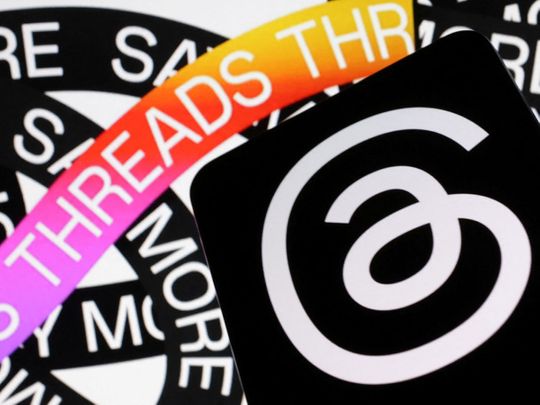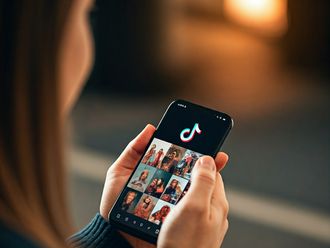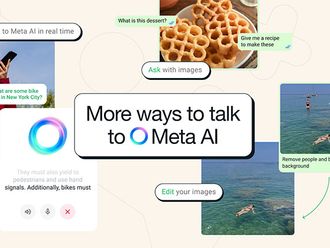
San Francisco: Since Elon Musk bought Twitter last year, the microblogging site has faced technical glitches, content moderation problems and controversy over its new owner's declared "free speech absolutism." Enter rival billionaire Mark Zuckerberg, whose Meta Platforms has seized the moment to launch a rival service, Threads, with the scale, financial firepower and pre-existing user base to potentially threaten Twitter's dominance.
What is the Threads app and how will it work?
Threads is a "text-based conversation app" that's widely seen as an alternative to Twitter. Like Twitter, the app will allow users to write and share real-time text updates among groups of followers, allowing them to like, reply, share and send direct messages. It even borrows the name from its rival: "Threads" is another word for a series of connected tweets from one account. Teaser images released on Apple's App Store suggest Threads will be connected to Meta's photo and video sharing network Instagram and will make it easy for people to find and track the same accounts that they follow there. The App Store page says Threads will be made available on Thursday, July 6.
Why is Meta launching a Twitter alternative?
Meta is clear about wanting to poach Twitter's users. Meta Chief Product Officer Chris Cox described Threads as "our response to Twitter" at a companywide meeting in June reported by The Verge. "We've been hearing from creators and public figures who are interested in having a platform that is sanely run," he said. That's a pointed reference to how Musk has been running the company since he purchased it for $44 billion in October 2022.
What has happened at Twitter under Musk?
Twitter has replaced its blue check verification system with a paid subscription offering, fired more than half of the company's workforce and implemented a controversial limit on the number of posts that users can see each day. Technical issues have raised concerns about whether Twitter can sustain its operations and regulate content with fewer staff. In July, the platform said access to its TweetDeck service would be limited to paid subscribers from August, cutting off free users. Many of these changes have drawn criticism from users and led to boycotts by news organizations such as NPR. European Union regulators have said Twitter needs to put more resources into addressing sensitive content including child abuse images and controlling disinformation around elections.
How many people have been leaving Twitter?
It's hard to tell because Twitter no longer releases information about how many users it has. Several notable people with large followings stopped using it shortly after Musk took over, including television star Oprah Winfrey and musician Elton John, whose accounts have not shared a tweet since the end of 2022. Actors Jim Carrey and Whoopi Goldberg deleted their accounts. Several apps that market themselves as alternatives to Twitter, including open-source social network Mastodon and invite-only Bluesky Social, an app spun out of Twitter by its former Chief Executive Officer Jack Dorsey, saw a surge in the number of users since Musk took over at Twitter. Mastodon had more than 13 million accounts by mid-2023, according to an account that tracks user numbers, up from 9 million in February. Neither has the clout of Meta's Instagram, which had 2 billion monthly active users as of December 2021, according to Meta's figures. That compares with 330 million monthly active users on Twitter in the first quarter of 2019, the last time the company released those numbers.
Meta hinted that Threads will be 'decentralised.' What does that mean?
The Verge reported that Threads will integrate with something called ActivityPub, which is a decentralized social media protocol created by the World Wide Web Consortium, an international organization that develops open standards for the Web. ActivityPub provides a way for different services to share information. This makes it possible for users to shop around for different platforms, as well as giving them more control over how their data is used. Most big social media platforms are controlled by private companies, which limit how much users can control and transfer their networks of friends to rival services. It remains to be seen how Threads will integrate with ActivityPub. Instagram, the platform it is affiliated with, does not run on such a service.






_resources1_16a30b3fb8b_small.jpg)




